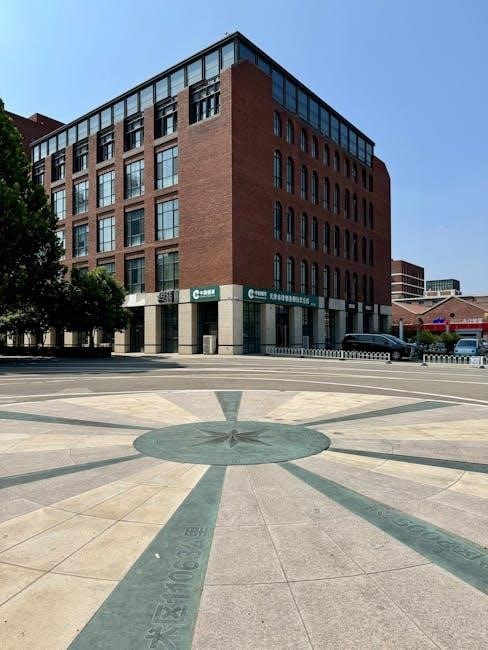
concrete rose pdf
Concrete Rose PDF: An In-Depth Analysis
Dive into an in-depth analysis of Angie Thomas’s “Concrete Rose” with our comprehensive PDF guide. Explore summaries, character analyses, and themes to unlock deeper insights into Maverick’s world and the story’s impact.
Overview of Angie Thomas’s Concrete Rose
“Concrete Rose,” a prequel to “The Hate U Give,” delves into the formative years of Maverick “Mav” Carter. Set in a marginalized community, the novel explores Mav’s journey through adolescence, grappling with responsibility, love, and loyalty. Angie Thomas masterfully crafts a narrative that showcases the challenges and triumphs of young adulthood. The story revolves around Mav’s role as a father and his entanglement in the complexities of gang life. Readers witness Mav’s growth as he navigates difficult choices and confronts the consequences of his actions. This compelling exploration invites empathy and understanding, revealing the humanity within a harsh environment.
Our comprehensive summary and analysis dissect “Concrete Rose,” offering chapter breakdowns, character examinations, and thematic explorations. Gain a deeper understanding of Angie Thomas’s powerful narrative and its social commentary.
Detailed Chapter Summaries
Delve into comprehensive chapter summaries of Angie Thomas’s “Concrete Rose,” providing a meticulous breakdown of each chapter’s key events, character developments, and pivotal moments. These summaries offer a clear understanding of the plot’s progression, highlighting the challenges and triumphs faced by Maverick “Mav” Carter. Each summary encapsulates the essence of the chapter, aiding in comprehension and critical analysis. From Mav’s initial struggles with unexpected fatherhood to his navigation of gang life and moral dilemmas, these summaries are designed to enhance your understanding of the narrative’s intricate layers and deeper meanings.
Character Analysis: Maverick “Mav” Carter
Explore a detailed character analysis of Maverick “Mav” Carter, the protagonist of Angie Thomas’s “Concrete Rose.” This analysis delves into Mav’s complex personality, motivations, and character arc throughout the novel. We examine his transformation from a teenager grappling with unexpected fatherhood and gang affiliations to a young man striving for a better life. Discover the internal and external conflicts that shape Mav’s decisions, his relationships with key characters, and his evolving understanding of responsibility, love, and community. Understand the nuances of Mav’s character as he navigates difficult choices and strives to break free from the cycle of poverty and violence.
Themes Exploration
Delve into the prominent themes explored in Angie Thomas’s “Concrete Rose.” This section examines the novel’s profound exploration of themes such as teenage fatherhood, the cycle of poverty, and the challenges of navigating gang culture. Discover how the novel addresses the complexities of responsibility, the search for identity, and the importance of community support. We analyze the impact of systemic inequality on young people and the choices they make. Explore the redemptive power of love, forgiveness, and the potential for growth even in the most challenging circumstances. Uncover the novel’s message of hope and resilience in the face of adversity.
Symbolism
Uncover the rich symbolism embedded within “Concrete Rose.” Explore the deeper meanings behind key motifs, enhancing your understanding of the novel’s message and its powerful emotional resonance.
The Rose as a Symbol of Hope and Resilience
The rose, inspired by Tupac Shakur’s poetry, represents hope and resilience in “Concrete Rose.” Like a rose pushing through concrete, Maverick embodies the ability to find beauty and strength amidst challenging circumstances. This symbol highlights the potential for growth and transformation even in the harshest environments. The rose signifies Mav’s journey to overcome adversity, nurturing his family and finding his own path. It reminds us that even from difficult beginnings, one can blossom and thrive, demonstrating unwavering determination and the enduring power of hope. It embodies beauty and perseverance.
Concrete as a Symbol of Adversity
In “Concrete Rose,” concrete embodies the harsh realities and systemic challenges facing Maverick and his community. It represents the lack of opportunity, the prevalence of gang violence, and the cycle of poverty that constricts their lives. The concrete symbolizes the tough exterior Maverick must adopt to survive, masking his vulnerability and limiting his potential for growth. It illustrates the unyielding obstacles that characters must overcome to achieve a better future. This oppressive environment tests their resilience. It represents the difficult beginnings and hardships of life in marginalized communities, ultimately shaping their choices and destinies.

Connections to The Hate U Give
“Concrete Rose” serves as a prequel, enriching “The Hate U Give” by providing backstory and context to Maverick’s character and motivations, deepening the understanding of Starr’s upbringing and community dynamics.
Exploring Maverick’s Backstory
Delve into the formative years of Maverick “Mav” Carter, the father figure from “The Hate U Give,” as “Concrete Rose” unveils his complex past. Discover the challenges and circumstances that shaped his character, from navigating gang life and teenage parenthood to grappling with difficult choices and their lasting consequences. The novel explores Mav’s early relationships, his evolving sense of responsibility, and the pivotal events that ultimately set him on the path toward becoming the man Starr knows. Uncover the roots of his wisdom, his struggles, and his unwavering commitment to family and community, providing a richer understanding of his role in “The Hate U Give.”
Prequel Context
“Concrete Rose” serves as a crucial prequel, enriching the narrative tapestry of Angie Thomas’s acclaimed series. Positioned before the events of “The Hate U Give,” it provides essential context for understanding the complexities of Garden Heights and the Carter family. Readers gain insight into the historical struggles, systemic issues, and cycles of poverty and violence that shape the community Starr navigates in the first novel. By exploring Maverick’s adolescence, the prequel illuminates the origins of his values, his involvement with the King Lords, and the sacrifices he makes to create a better future for his children. This backstory enhances the emotional resonance of “The Hate U Give” and deepens our appreciation for the characters’ resilience in the face of adversity.

Study Guide Resources
Elevate your understanding of “Concrete Rose” with our curated study guide resources. Access SparkNotes, LitCharts analyses, insightful quotes, and explanations designed to enhance comprehension and critical thinking skills.
SparkNotes and LitCharts Analysis
Unlock a deeper understanding of “Concrete Rose” with readily available SparkNotes and LitCharts analyses. These resources offer comprehensive chapter summaries, insightful character analyses, and explorations of key themes prevalent throughout Angie Thomas’s powerful prequel. Delve into the complexities of Maverick’s journey and the challenges he faces in Garden Heights. Gain valuable perspectives on the novel’s literary devices, symbolism, and its connection to “The Hate U Give.” These study aids provide accessible and thorough breakdowns, perfect for students and readers seeking a richer appreciation of the text. Enhance your comprehension and critical thinking skills with these trusted analytical tools.
Quotes and Explanations
Explore the profound meaning behind key passages in “Concrete Rose” with our curated collection of quotes and explanations. Unpack the significance of Maverick’s words and actions as he navigates the complexities of young adulthood, fatherhood, and the harsh realities of his environment. Each quote is carefully selected to highlight the novel’s central themes, character development, and underlying messages about hope, resilience, and the cycle of poverty. Delve into the context surrounding each quote to gain a deeper appreciation for Angie Thomas’s masterful storytelling and the powerful impact of her words. Discover hidden layers of meaning and nuance within the text.

Critical Reception and Impact
Discover the critical reception and impact of Angie Thomas’s “Concrete Rose.” Explore reviews, awards, and the novel’s influence on young adult literature, sparking conversations about relevant social issues.
Reviews and Awards
“Concrete Rose” has garnered significant praise and accolades, solidifying its place in contemporary young adult literature. Critics have lauded Thomas’s compelling narrative, authentic voice, and exploration of complex themes. The novel’s unflinching portrayal of Maverick’s struggles and growth has resonated with readers and reviewers alike.
The book’s success is evident in its numerous awards and nominations, recognizing its literary merit and cultural impact. These accolades highlight “Concrete Rose” as a powerful and thought-provoking contribution to the literary landscape, prompting important conversations about adolescence, responsibility, and community. Its critical reception underscores its importance in contemporary discussions.

Tupac Shakur’s Influence
Tupac Shakur’s powerful poem, “The Rose That Grew from Concrete,” profoundly influenced Angie Thomas’s novel. It provides the title and explores themes of resilience amidst adversity, shaping the narrative’s core message.
The Rose That Grew from Concrete Poem
Tupac Shakur’s “The Rose That Grew from Concrete” serves as a cornerstone for understanding the novel’s themes. The poem embodies resilience and triumph over adversity, depicting a rose that blossoms despite its harsh surroundings. It symbolizes hope, beauty, and the potential for growth even in the most challenging environments.
The poem’s message resonates throughout “Concrete Rose,” mirroring Maverick’s journey and the struggles faced by the characters in Garden Heights. It emphasizes the importance of perseverance, self-discovery, and finding light amidst darkness, reflecting Tupac’s lasting impact on the narrative’s core essence and message.

